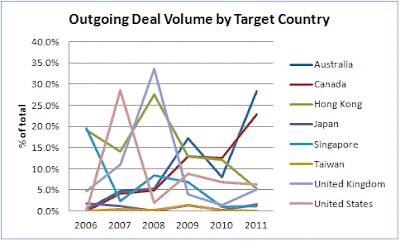Crude prices soared after the situation in Libya escalated at the end of February. The sustained price increase since the conflict erupted is not justified by the amount of production displaced by the conflict. Libya exports 80% of its 1.6 mmbpd of production, so the supply shock is about ~1.3 mmbpd. OPEC has about ~5 mmbpd of spare capacity. When oil prices increased to $145 / bbl in the summer of 2008, Saudi Arabia boosted output to 9.6 mmbpd, well above the current output of 8.3 mmbpd. Notwithstanding capacity additions (which have been significant), Saud Arabia can cover the entire Libyan deficit by itself with spare capacity of 3 mmbpd. There is also significant refining spare capacity in Europe. Though heavy / light differentials will (and have) increased due to the quality difference between Libyan and Saudi oil, crude and product prices have gone higher than justifiable on a supply / demand basis.
Crude has moved further than justified by fundamentals due to the risk of further conflict. Nigerian elections are coming up this quarter and the severity of Syrian protests are growing. But the key driver is undoubtedly the tail risk of conflict escalating in Saudi Arabia itself.
Assuming a fair value crude price (Brent) of $90 / bbl implies a risk premium of around $30 (with Brent around $120-125). The uncertainty of what future conflict might look like makes it difficult to evaluation the value of the risk premium, but the relationship should look as follows:

It's difficult to take a strong stance on whether this risk premium is justified (my gut reaction given the implied probabilities is that the risk premium is overstated). I think a better question is how long does oil deserve this premium? It's hard to see a reason why the premium will disappear as long as we have headline grabbing news from the Middle East. The problem is that there are so many conflicts - Libya being merely the most conspicuous - that a risk premium may be warranted for an extended period. So while the value of the risk premium may be overstated, the premium may endure for longer than those focused on the progress in Libya might expect.



